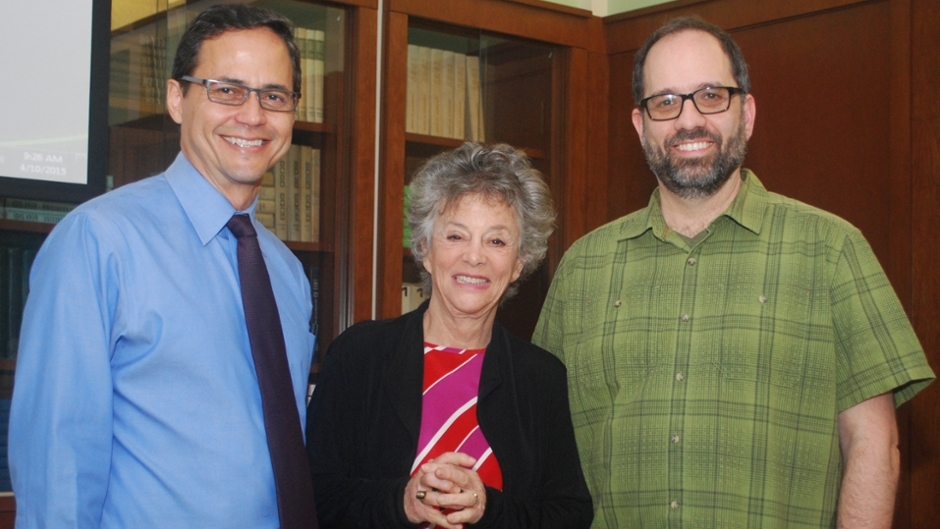Humor, blogs, and media outreach are among the ways that academics can impact social change, according to four distinguished scholars who spoke at the School of Education and Human Development’s April 10 Community Well-Being Forum at the Newman Alumni Center.
“Inequality has significant toxic effects on a substantial portion of our population, such as poor health, high rates of incarceration, poverty, and racism,” said Etiony Aldarondo, associate dean for research, at the school. “Intellectuals must draw on their specialized skills and resources to disseminate their knowledge in a way that the public can understand.”
Aldarondo led the discussion on “The New Public Intellectual and Social Change” with Isaac Prilleltensky, the dean of the School of Education and Human Development; Stephanie Coontz, research director of the Council on Contemporary Families; and Phil N. Cohen, professor of sociology at the University of Maryland.
“I believe in pushing the limits and using humor and sarcasm to provoke conversations on important topics,” said Prilleltensky. “It doesn’t always work, but we need to create opportunities for dialogue that can lead to meaningful change.”
Coontz noted that going public with accurate research is difficult, because the facts don’t speak for themselves. “If you want to get good research out to the public in a way that it will be heard, you need teamwork,” she said. “Find the nuggets in your own research and help the press connect with other academics who can also provide them with solid information about your topic.”
Cohen, who wrote a blog on family equality for five years, said academics need to remember that their work may be read by multiple audiences, including their peers, their students, and the public. “Not every academic should become involved in public engagement, but it’s something you should consider,” he said. “I believe it’s important to debunk bad research or how it’s being used, and that’s one way intellectuals can contribute to social change.”

